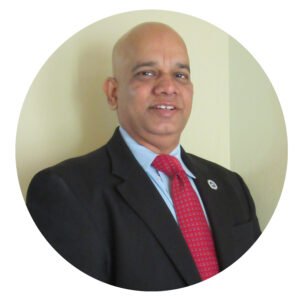The Energy Warriors Training covers the fundamental and high-level energy efficiency concepts and basic knowledge in energymanagement. The webinars cover topics like basics of energy; lighting HVAC and building envelope; compressed air systems; pumps and fans; and process heating and cooling systems.
Session 1 – Basics of Energy
This session discusses the basics of industrial energy and a systematic approach to improve its efficiency. Attendees will learn about how to perform energy accounting, utility bill analysis, energy benchmarking, and energy assessments and the benefits of these activities. This webinar also covers some important energy related codes and standards, diagnostic instruments, software tools and technical resources for industrial energy efficiency.
Session 2 – Lighting, HVAC and Building Envelope
Lighting systems, building envelope, and HVAC systems are very important for safety and productivity in manufacturing facilities. This session covers various lighting technologies (CFL, HID, LED, etc.) and lighting system control strategies (occupancy censors, light level sensors, etc.). This presentation also discusses how to measure the energy performance of building envelope and HVAC systems and how to select based on their performance. Attendees will also learn about how to identify conservation opportunities and quantity savings for these three energy systems.
Session 3 – Compressed Air Systems
Compressed air systems consume around 90 Billion kWh electricity in US each year. With almost 80% of this input electricity being dissipated as heat, compressed air is a very expensive utility. This session will discuss the pros and cons of different compressor configurations, its controls with examples from the field and common energy conservation measures. Commonly identified compressed air energy efficiency opportunities are also discussed. Attendees will also learn about various resources for modeling and identifying opportunities in compressed air system, including the AirMaster+ tool.
Session 4 – Pumps and Fans
Pump and fan systems are part of the vital, but often overlooked, infrastructure that keeps our facilities and processes working correctly. Join us we step through system basics and fundamentals on understanding how these systems operate and more importantly, how to ensure they are optimized and operating efficiently. Finally, attendees will also learn about various resources for modeling, identifying and quantifying opportunities in these systems.
Session 5 – Process Heating and Cooling Systems
This webinar introduces process heating and energy saving measures for industrial process heating equipment such as furnaces, dryers, ovens, heaters and kilns. During this webinar, the audience will learn performing a heat balance for a heating system, overall waste heat opportunities in various industries, and typical waste heat recovery methods. This session provides an overview of some essential process cooling systems-equipment. Then it will talk about various low-cost energy conservation opportunities, energy savings technologies, control strategies, and opportunities to optimize process cooling systems.

Mr. Riyaz Papar
Mr. Riyaz Papar is a registered Professional Engineer (ME), a Certified Energy Manager and a Fellow of ASME and ASHRAE. He is the CEO of C2A Sustainable Solutions, a company based in The Woodlands, Texas.
Mr. Papar is a US DOE Senior Instructor and a US DOE Qualified Specialist (Steam). Mr. Papar is also an Industrial Heating and Cooling System International Expert at United Nations Industrial Development Organization.
Mr. Papar has spent almost three decades in energy efficiency consulting for thermal systems – steam, cogeneration, waste heat recovery, chilled water and refrigeration. Using a systems approach methodology in thermal systems, he has completed ~150 energy assessments both in the US and internationally. Several of these energy assessments have resulted in implemented projects that have continued to save millions of dollars, valuable energy resources and reduced greenhouse gas emissions world-wide.
Mr. Papar has trained more than 7,500 industry personnel internationally. He has worked as Lead Instructor/Facilitator with multinational government and industrial agencies in South Africa, Vietnam, Thailand, Indonesia, Malaysia, Philippines, China, India, Kazakhstan, Egypt, Myanmar and Mauritius to disseminate this capacity building effort.
Mr. Papar has been an author of more than 50 Technical Publications in Journals, Conference Proceedings & Trade Magazines. Mr. Papar has also been an “Energy Saver” columnist for the Chemical Processing magazine published by PutmanMedia.
Mr. Papar has a Master’s (ME) from the University of Maryland, College Park and a Bachelor’s (ME) from the Indian Institute of Technology, Mumba

